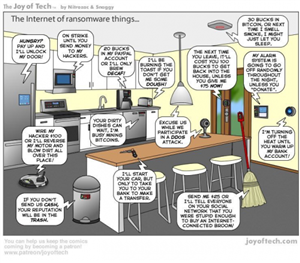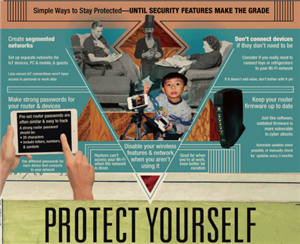
With cyber-attacks on the rise, the chances of people’s fridges or toasters being attacked is becoming increasingly likely. This connected shower looks like a great idea for warm showers on chilly winter mornings, but it if gets hacked and leads to a freezing cold shower – definitely not good!
So what can be done to prevent these attacks?

This infographic suggests a few basic things that consumers can do to protect themselves, including secure passwords, keeping firmware up to date and disabling the network's wireless features when it is not being used.
However not everyone has the know-how or will be bothered to actually do this, so what more can be done?
One invention that has come out of CES 17 is Norton’s Core IoT home security. It is a router that monitors suspicious activity and acts as another level of security for all the IoT devices in the home.

But is this just another product to buy on top of an expensive internet connected fridge or washing machine or will it become a must-have in the home?

